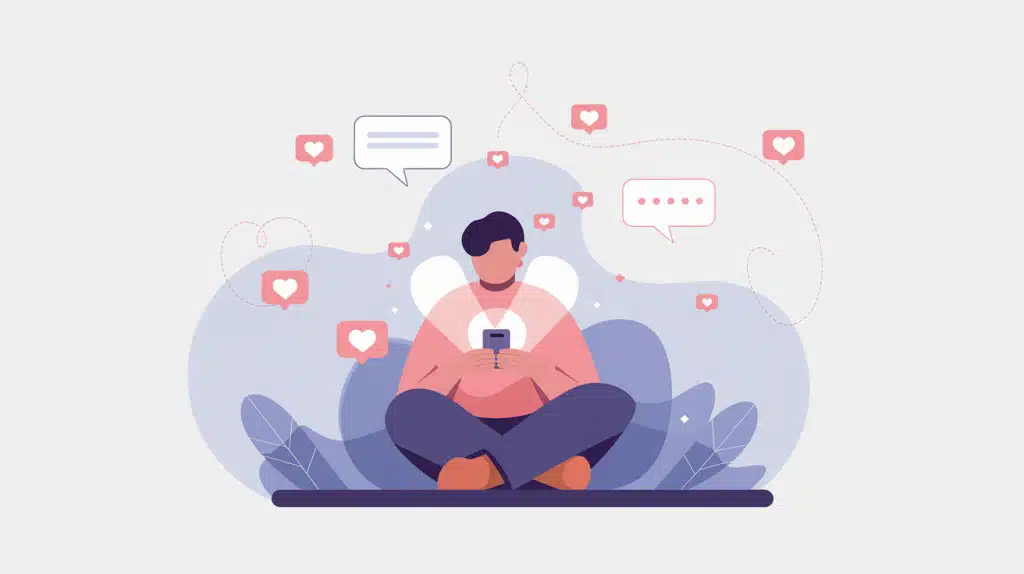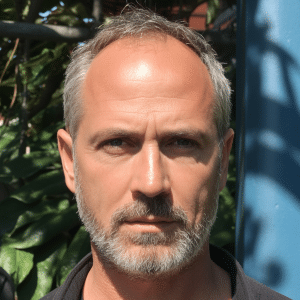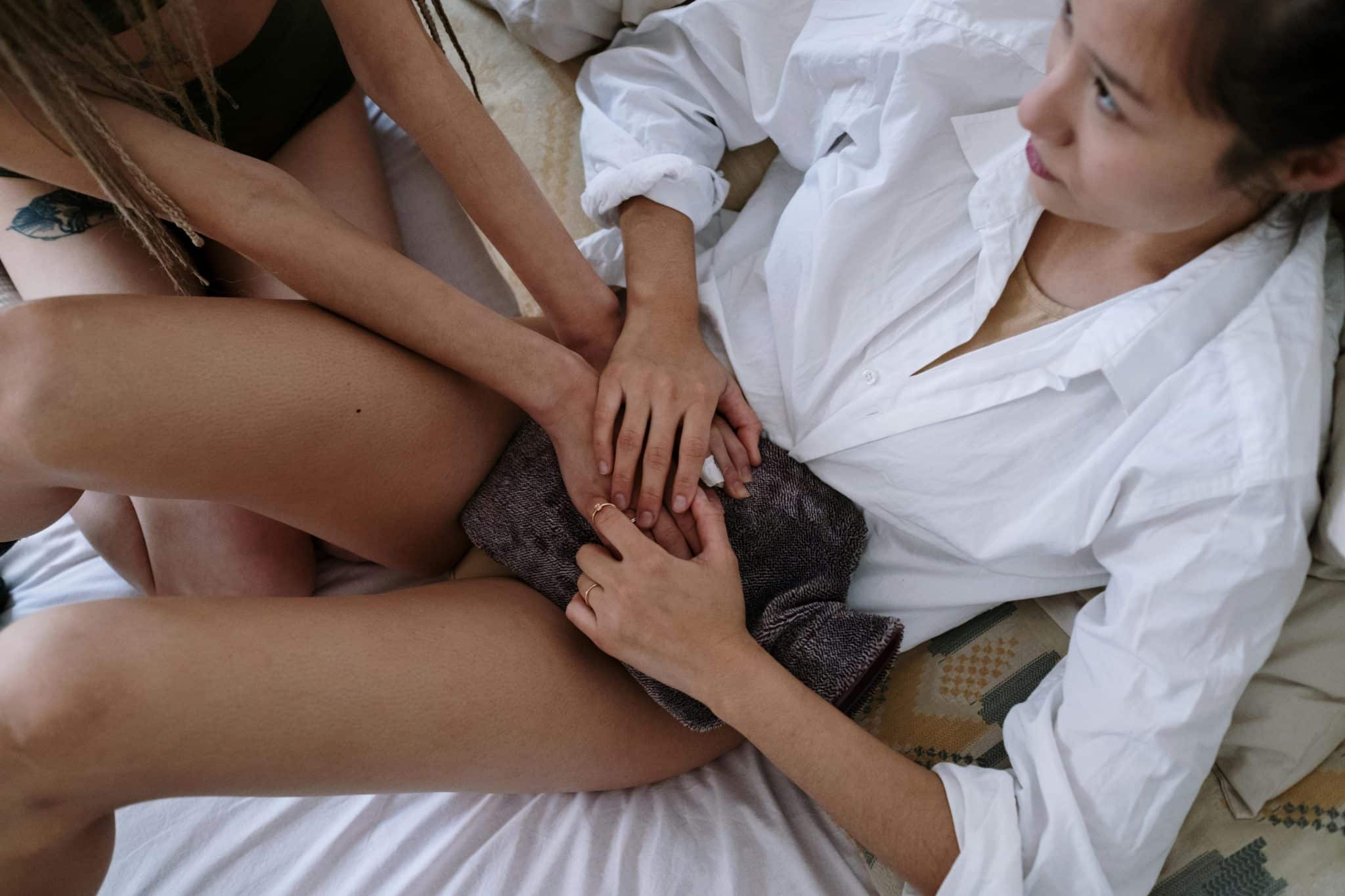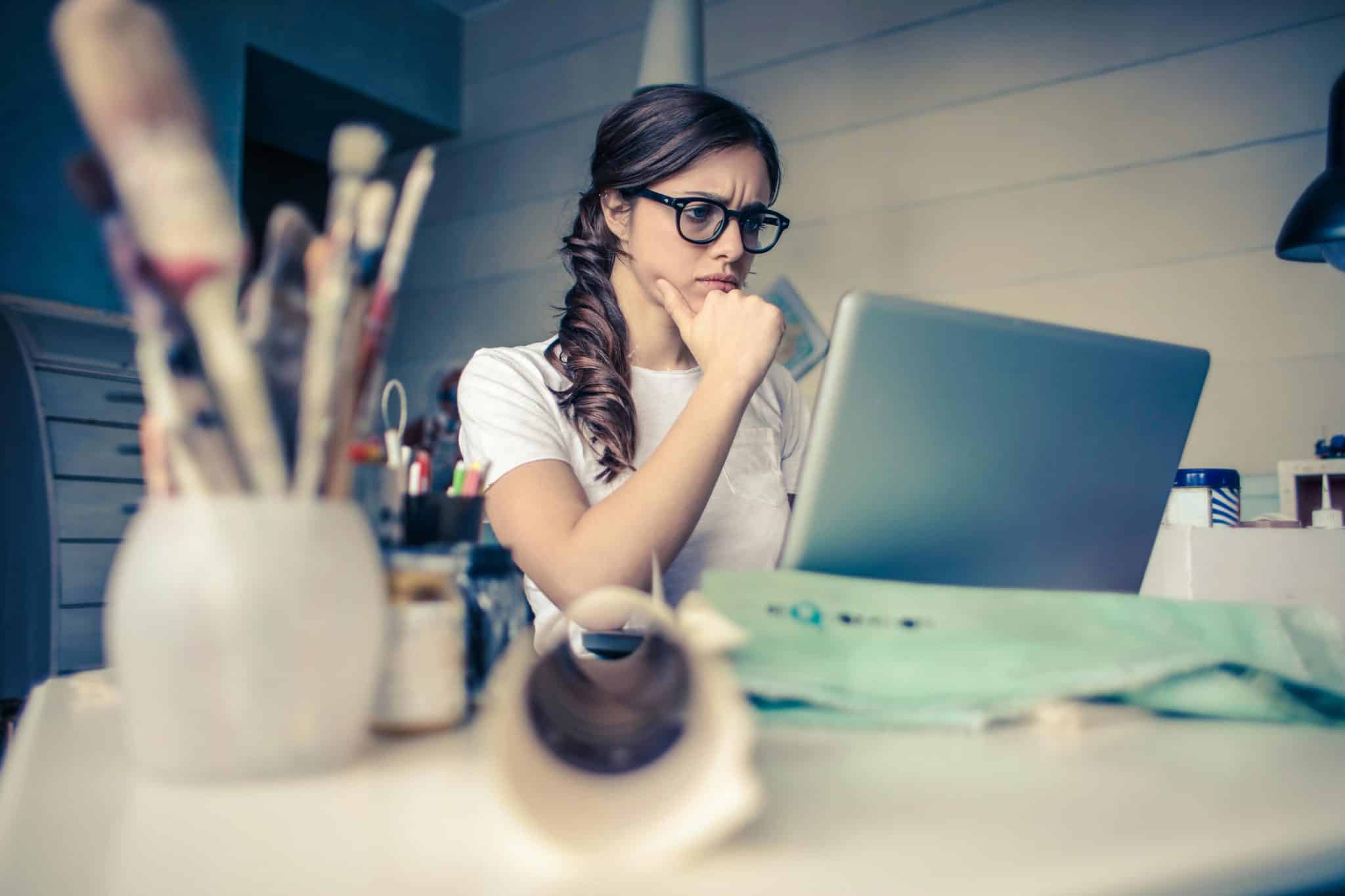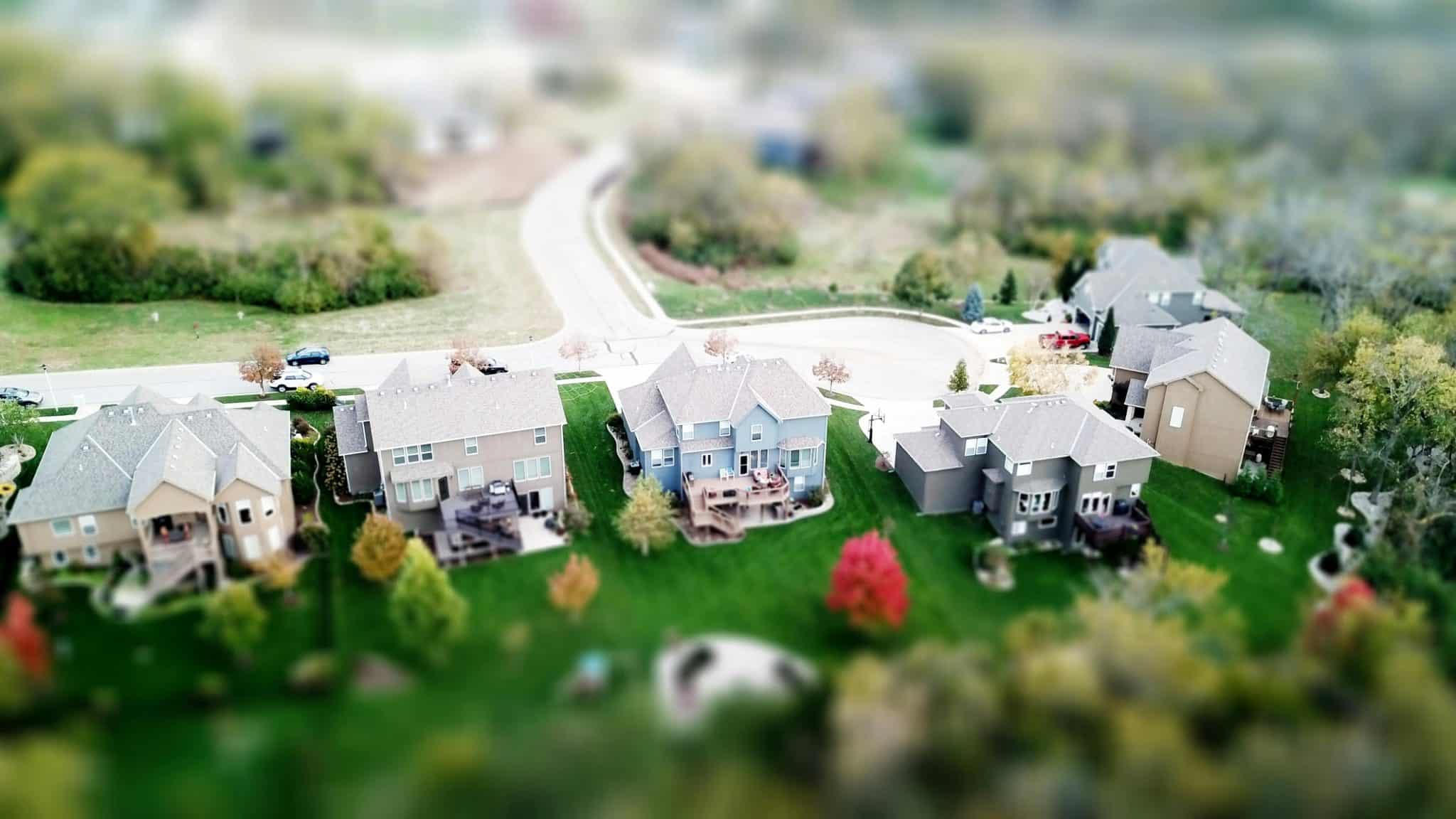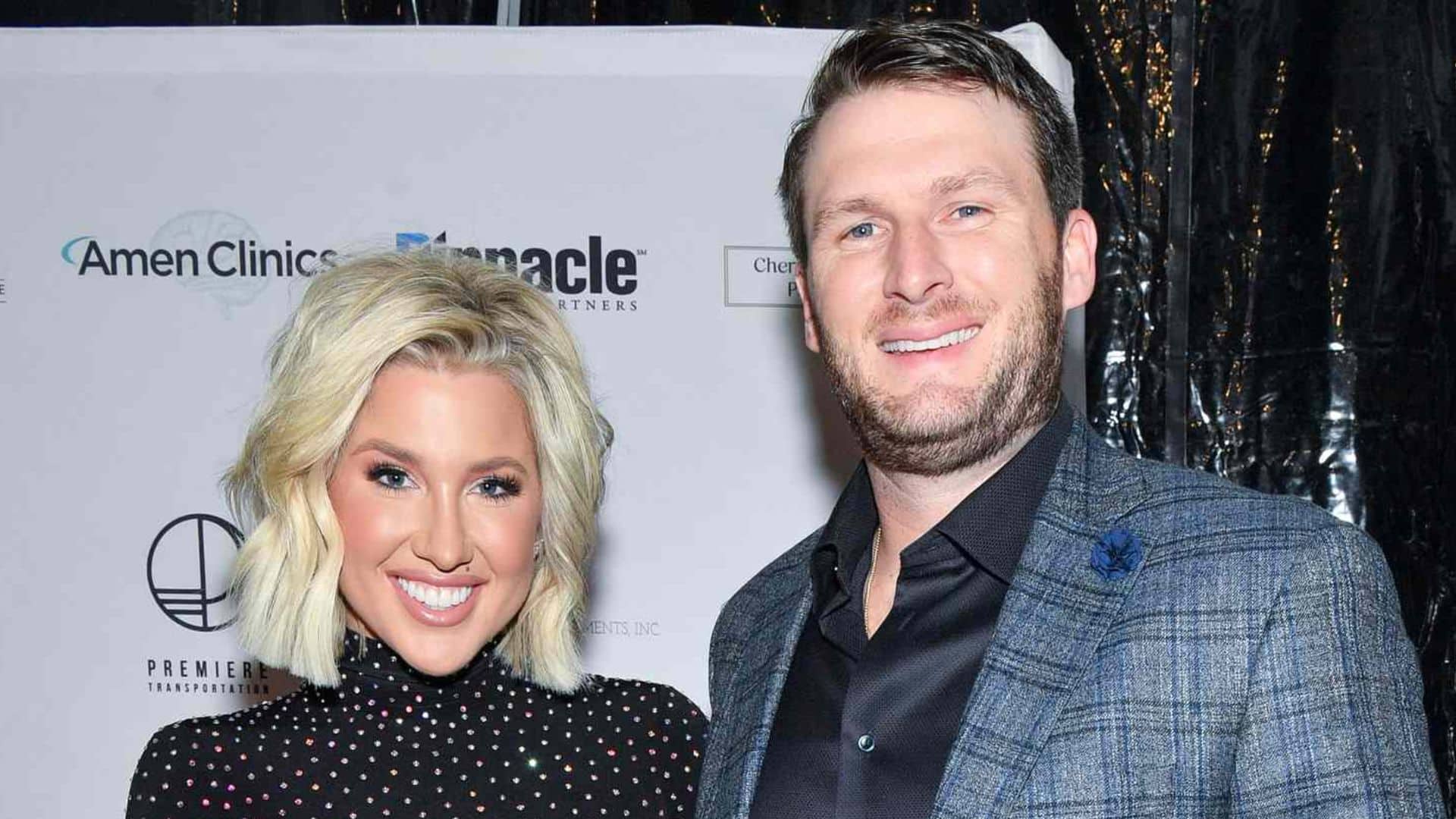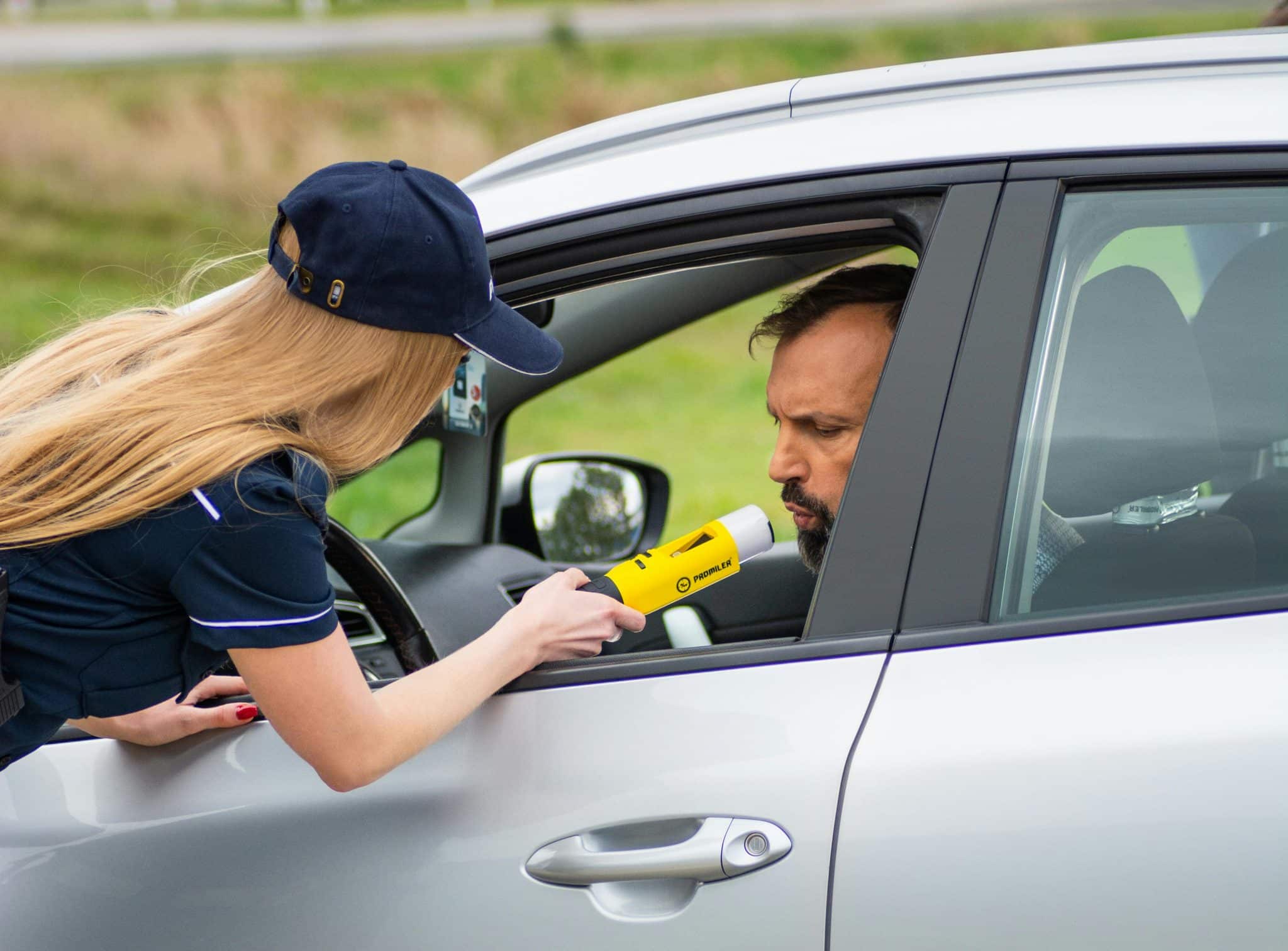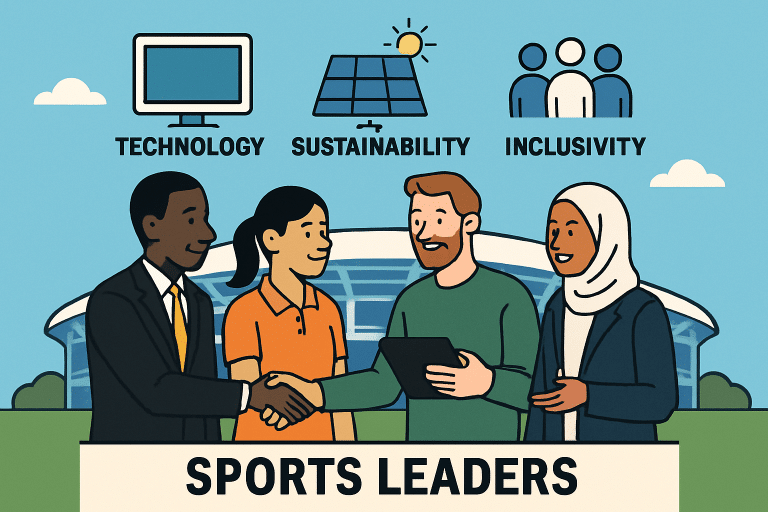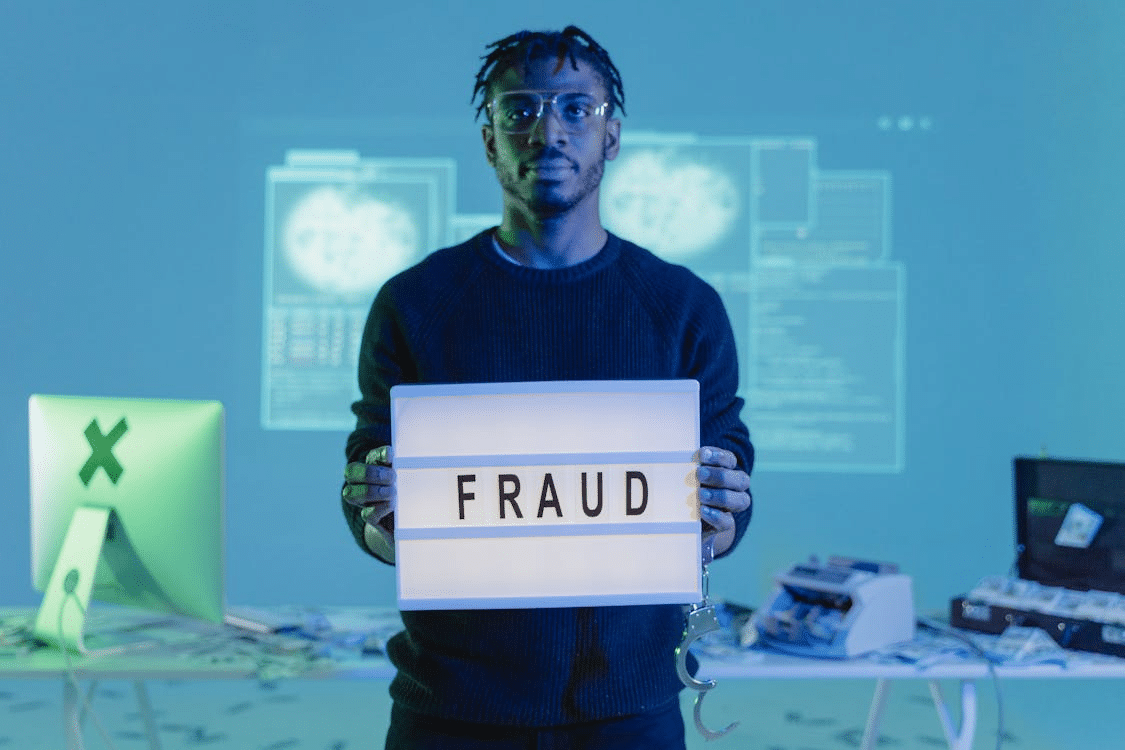Have you ever felt like you truly know your favorite YouTuber? Do you worry about a celebrity’s well-being as if they were a close friend?
These one-sided connections are called parasocial relationships. They happen when you develop emotional bonds with someone who doesn’t know you exist.
Think about feeling protective of your favorite podcaster or getting excited about an influencer’s updates.
While these feelings are completely normal, they can impact your mental health in unexpected ways. Some people find comfort in these connections. Others feel confused about caring so much about strangers.
In this blog, I’ll explain what parasocial relationships are, their impact on your mental well-being, and how to establish healthy boundaries.
What Are Parasocial Relationships?
A parasocial relationship is a one-sided emotional connection you form with someone you don’t know personally. The key point here is that these relationships feel real to you, but they’re not mutual.
You know details about their life, their personality, and their struggles. But they have no idea you exist.
This could be:
- TV personalities and news anchors
- Social media influencers and content creators
- Musicians and actors
- Podcast hosts you listen to regularly
- Authors whose books you love
- Gaming streamers you watch daily
This isn’t a new concept. People have felt connected to radio hosts, movie stars, and TV characters for decades. What’s different now is how social media makes these connections feel more personal than ever before.
Why Do Parasocial Relationships Form?
Your brain doesn’t always distinguish between people you know in person and those you see on screens. When you regularly watch someone’s content, your mind begins to treat them like a familiar person.
Several factors make these bonds stronger:
- Regular exposure – Seeing the same person daily or weekly
- Personal sharing – When creators share private details about their lives
- Direct communication style – Speaking directly to the camera as if talking to you
- Consistency – Showing up at predictable times (like daily videos or weekly podcasts)
- Relatability – Sharing similar interests, struggles, or sense of humor
How Parasocial Relationships Affect Your Mental Health
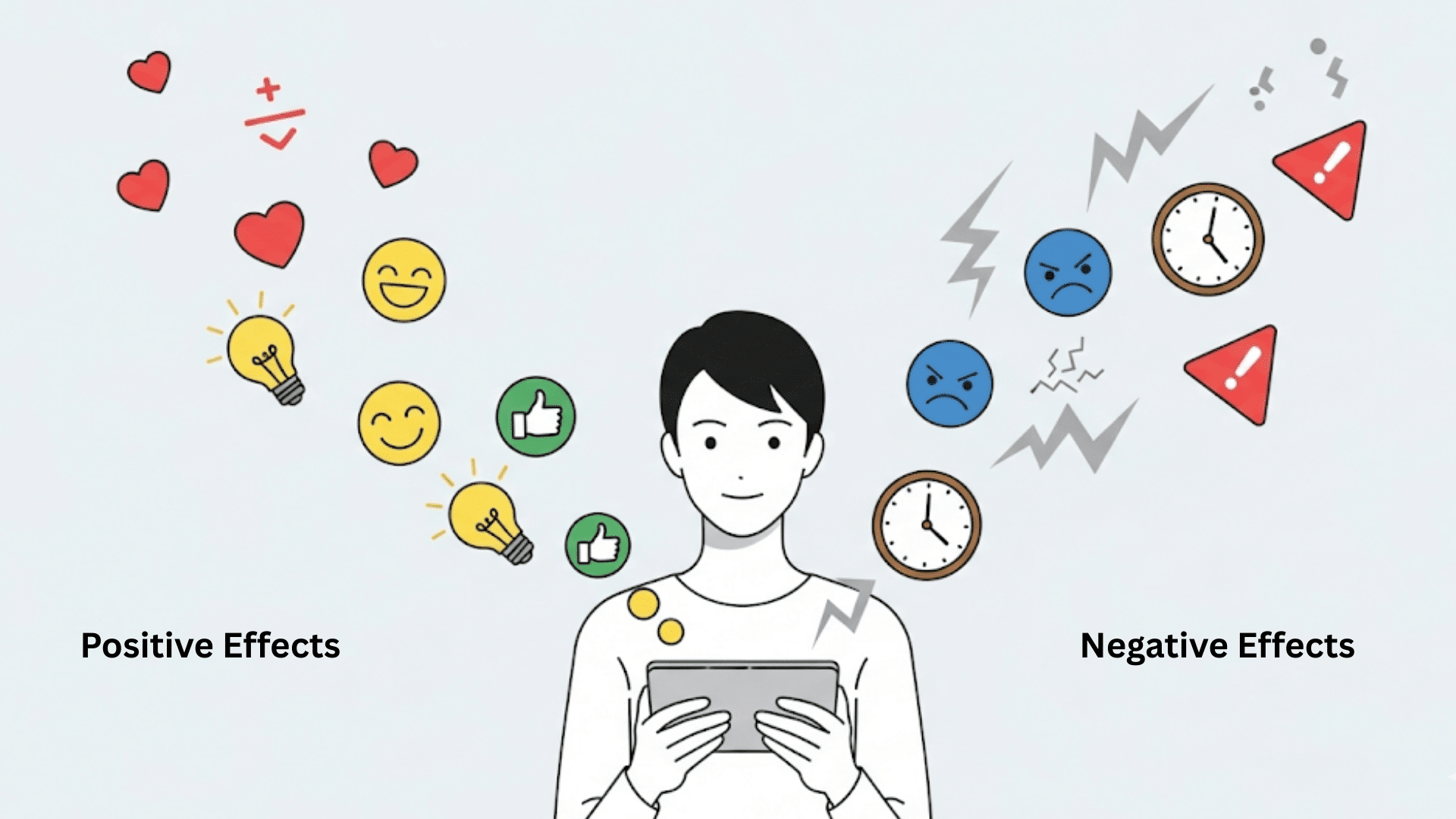
These relationships can impact your mental health in both positive and negative ways. Understanding these effects helps you maintain a healthy balance.
Positive Effects on Mental Health
- Emotional Support and Comfort: Many people find genuine comfort in parasocial relationships. Watching your favorite creator can feel like spending time with a friend, especially during lonely periods.
- Motivation and Inspiration: Following someone whose values align with yours can inspire positive changes in your life. Their success stories might motivate you to pursue your own goals.
- Sense of Community Comment sections and fan communities can connect you with like-minded people who share your interests.
- Learning and Growth Educational content creators can teach you new skills, introduce fresh perspectives, and help you grow personally.
Negative Effects on Mental Health
- Social Isolation Spending too much time in parasocial relationships might replace real-world social connections. This can leave you feeling more isolated over time.
- Unrealistic Expectations Creators often share only their best moments. This curated view can make you feel bad about your own life by comparison.
- Financial Strain Some people spend money they can’t afford on merchandise, donations, or subscriptions to feel closer to their favorite creators.
- Emotional Dependency Relying too heavily on one person’s content for emotional support can become problematic, especially if they stop creating content or change their approach.
- Anxiety and Disappointment When creators don’t post regularly or share concerning updates, you might feel genuine worry or disappointment that affects your mood.
Setting Healthy Boundaries in Parasocial Relationships
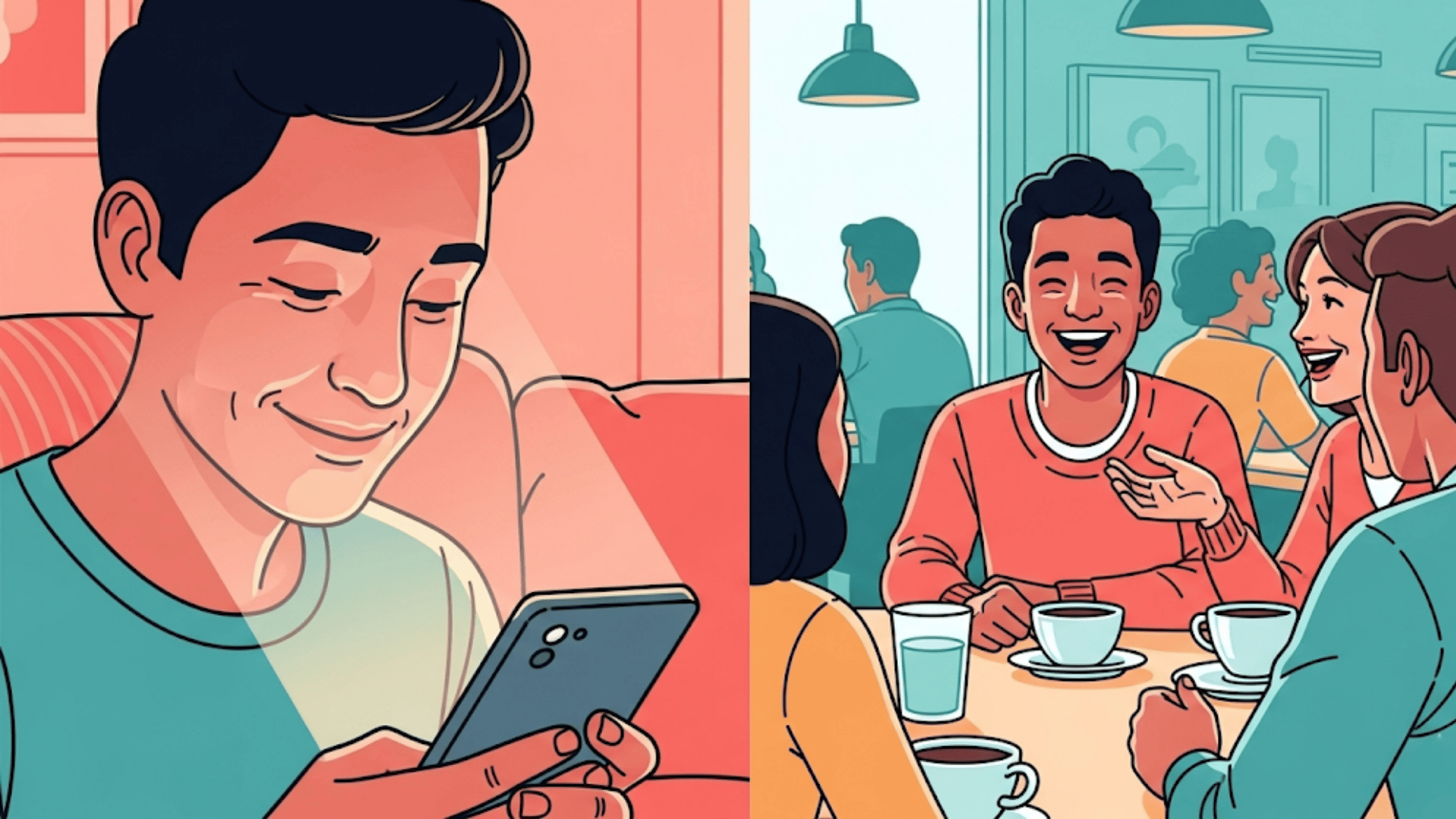
Creating boundaries doesn’t mean you have to stop enjoying content you love. It means consuming it in a way that supports your overall well-being. Think of boundaries as guidelines that help you stay in control.
1. Limit Your Time
Set specific times for consuming content each day. Use app timers to track the amount of time you spend watching or scrolling. Take regular breaks from your favorite creators to reset your perspective.
2. Diversify Your Sources
Follow multiple creators instead of focusing on just one person. Balance entertainment content with educational material that helps you grow. Don’t rely on one person for all your emotional support or validation.
3. Check Your Motivations
Ask yourself, ‘Am I watching this because I enjoy it, or because I feel I have to?’ Notice if you feel anxious when this person doesn’t post regularly. Consider whether you’re neglecting real relationships to consume this content.
4. Maintain Real-World Connections
Spend quality time with friends and family members in person. Join clubs or groups that align with your interests to meet new people. Practice social skills in face-to-face interactions on a regular basis.
5. Set Financial Limits
Create a clear budget for subscriptions and merchandise purchases. Think twice before making purchases during emotional or vulnerable moments. Remember that financial support doesn’t create a real relationship with creators.
When Parasocial Relationships Become Concerning
Most parasocial relationships are harmless, but some situations require extra attention.
| Warning Sign | What It Looks Like | When to Be Concerned |
|---|---|---|
| Obsessive Behavior | Constantly checking for updates, analyzing every post, and refreshing social media feeds | Unable to focus on other activities, feeling anxious without updates |
| Impact on Daily Life | Missing work/school, avoiding friends, neglecting self-care | When creator content becomes more important than responsibilities |
| Emotional Over-Investment | Feeling heartbroken over the creator’s problems, getting angry at their choices | Reacting as if you’re personally affected by their decisions |
If you notice these patterns, consider talking to a counselor or therapist who can help you develop healthier coping strategies.
Building Real Connections Alongside Parasocial Ones
The goal isn’t to eliminate parasocial relationships entirely but to balance them with genuine human connections.
Look for local groups, online forums, or social clubs where you can meet people who share your interests.
Practice applying what you learn from your favorite creators to enhance your own communication and social skills.
When you’re with friends or family, put away devices and focus on the people physically with you. Share content you enjoy with others, but don’t make it the only thing you talk about.
This balance helps you get the benefits of both digital inspiration and real human connection without letting either become unhealthy.
Key Takeaways
Parasocial relationships are normal and don’t have to be harmful. The key is understanding how they affect you personally.
These connections can provide comfort and inspiration when kept in perspective. They work best when they complement real-world relationships, not replace them.
Pay attention to how you feel when consuming content. If you notice negative patterns, take breaks or seek support from friends and mental health professionals.
The most important relationship is with yourself. Ensure your media habits align with your well-being and life goals.
What’s your experience with parasocial relationships? Have they affected your mental health positively or negatively? Share your thoughts below.

